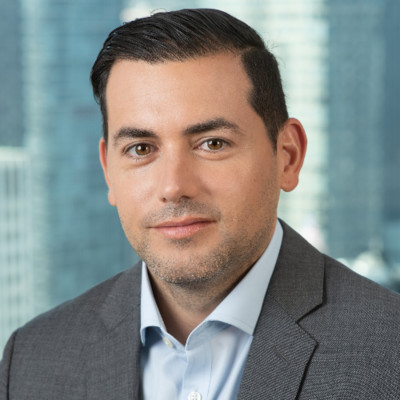
John Freund's Posts
3718 Articles

Omni Bridgeway expands its team of US-based investment professionals
Litigation Funding Experiences Maturity and Growth
Virage Capital Management Inks Deal for Insurance Lawsuit Revenue

Litigation Funder Validity Finance Raises New Managed Fund of $70 Million to Commit Alongside Permanent Capital Base
With demand for litigation finance continuing to grow among businesses of all sizes, leading dispute funder Validity Finance reports it has raised a new managed fund of $70 million in capital commitments. The newly raised “sidecar” fund further diversifies Validity’s business and advances its experience as an alternative asset manager. To date, Validity’s third-party managed funds total nearly $150 million of assets under management, in addition to its permanent capital base.
Validity’s latest fund investors include its original private equity investors, as well as previously committed third-party investors and a prominent family office. Since its launch in mid-2018, Validity has committed nearly $300 million towards clients in more than 40 separate investments, helping clients in scores of commercial disputes, backing law firms as well as businesses, individuals and institutions. In the past 18 months, the firm has evaluated hundreds of potential investments and committed approximately $150 million toward a wide span of cases, including contract disputes, antitrust claims, trade secret and misappropriation claims, insurance coverage cases and intellectual property matters. The firm has also supported civil rights cases. Validity CEO Ralph Sutton commented: “The pandemic created enormous challenges for pending cases, with trial dockets slowed and financial pressures weighing on many claimants. We’re fortunate to have maintained a strong pipeline of capital and a circle of investors who support our approach to fairness and client needs. We’re especially pleased to welcome some prominent new investors into the fold.” Mr. Sutton noted the high demand from law firms seeking funding – for individual matters as well as portfolios. “We can finally say that Big Law understands our business, and even many of the biggest, most profitable firms understand the value of non-recourse funding to help their clients and their own profitability, especially as time horizons for financial outcomes have stretched.” He also noted a pronounced uptick in funding requests from larger corporate clients seeking alternatives to conventional lenders or commercial finance companies. “Corporates have come to appreciate the sophistication and focus of high-quality dispute funders. Even well-capitalized businesses understand the economic advantages of lit funding to move risk off their balance sheets.” Since its founding, Validity has reviewed over 1,500 investment opportunities, reflecting the firm’s exacting due diligence process. That process also reflects the caliber of Validity’s team of portfolio advisers, consisting of experienced trial lawyers from the country’s preeminent litigation firms, many of whom served as federal law clerks. The firm has backed commercial matters across federal and state courts, as well as domestic and international arbitrations. For the months ahead, Validity plans to continue expansion plans that were put on hold during the pandemic, with more growth anticipated before the end of 2021. Validity has two U.S. offices (New York and Houston) and recently marked the one-year anniversary of launching its Tel Aviv office.
About Validity Validity is a commercial litigation finance company that provides non-recourse investments for a wide variety of commercial disputes. Validity’s mission is to make a meaningful difference in our clients’ experience of the legal system. We focus on fairness, innovation, and clarity. For more, visit www.validityfinance.com

Day Two Recap of the LF Dealmakers Conference
- Patrick Dempsey, Chief Investment Officer, US, Therium Capital
- Sarah Johnson, Co-Head Litigation Finance, The D. E. Shaw Group
- Aaron Katz, Chief Investment Officer, Parabellum Capital
- David Kerstein, Chief Risk Officer & Senior Investment Manager, Validity Finance
Plan to Sue Mercedes Over Role in Dieselgate Moves Forward
Litigation Finance in China’s Belt and Road Initiative
ANZ Stock Price Dips After Class Action Complaint Filed
After Rough 2020, AxiaFunder Optimistic About 2022 Profits
Cash4Cases Founder Pleads Guilty in Securities Fraud Case

Day One of LF Dealmakers Concludes
- Brandon Baer, Founder & CIO, Contingency Capital
- Fred Fabricant, Managing Partner, Fabricant
- Michael Nicolas, Co-Founder & Managing Director, Longford Capital
- Andrew Woltman, Principal & Co-Founder, Statera Capital

Judge Shira A. Scheindlin Delivers the Keynote Address at LF Dealmakers
LegalPay’s First LitFin SPV Oversubscribed—Second SPV Announced

Liti Capital Launches Scambusters to tackle Crypto Fraud

GetSwift Discloses Details of Proposed Settlement of Australian Class Action
- A first settlement payment of AU$1.5m, to be paid in instalments as follows:
- AU$500,000 within 7 days of the date of execution of the Deed;
- AU$500,000 due by 7 October 2021; and
- AU$500,000 due by 7 January 2022.
- During the term of 3 years from the date of the parties executing a Deed of Settlement ("Fundraising Term"), settlement payments equaling 8% of any funds raised by The Company by way of capital raising, with each such amount to be paid within 6 weeks of the amount being collected by The Company.
- During the Fundraising Term, The Company is to raise capital equivalent to 10% to 20% of its pre-raising market capitalisation at the point in time that:
- it first hits any of the following market capitalisation levels (in CAD):
- $100m;
- $250m;
- $400m; and
- the market capitalisation remains at the level in 3.a.i – iii (as applicable) on average for 4 weeks following the date it first hit that market capitalization.
- it first hits any of the following market capitalisation levels (in CAD):
- In any of the three 12-month periods comprising the Fundraising Term, if no funds are raised by capital raising:
- the Respondents and/or The Company will be required to make a settlement payment equal to 5% of The Company Group’s revenue from contracts with customers ("revenue") during the 12- month period ending on the most recent quarterly reporting date prior to the conclusion of the relevant 12-month period ("revenue percentage") within 4 weeks of expiry of the period; however
- if 4(a) applies in respect of the first year of the Fundraising Term, the required settlement payment under 4(a) will be not be payable until the conclusion of the second year of the Fundraising Term.
- Subject to clause 6 below, during any of the three 12-month periods comprising the Fundraising Term, for any capital raising undertaken by The Company where the amount of funds raised is less than 20% of The Company’s pre-raising market capitalisation, then:
- the Respondents and/or The Company will be required to make a settlement payment calculated on the same revenue percentage basis as clause 4 above within 4 weeks of expiry of the relevant 12-month period; however
- the amount payable will be discounted based on the amount of funds raised applying the following formula:
- the revenue percentage payable will be the percentage equivalent to 25% of the percentage amount by which the relevant capital raising is less than 20% of The Company’s market capitalisation; such that (by way of example);
- if the capital raising is 10% of The Company’s market capitalisation, the revenue percentage payable is 2.5%; whereas
- if the capital raising is 15% of The Company’s market capitalisation, the revenue percentage payable is 1.25%.
- If The Company conducts more than one capital raising during any of the 3 twelve-month periods comprising the Fundraising Term, then for the purpose of the calculation of any revenue percentage settlement payment for that period, the two or more capital raisings will be treated as one capital raising. For instance, if:
- The Company conducted two capital raisings during a single 12-month period for amounts of 5% and 10% of The Company’s market capitalisation at the relevant times;
- The Company’s market capitalisation was CAD200m at the time of the first capital raising and CAD250m at the time of the second capital raising; and
- this resulted in raisings of CAD10m and CAD25m respectively; then
- the weighted average revenue payment would be calculated premised on the extent to which CAD35m (the combined amount raised) fell short of being 20% of CAD225m (the weighted average market capitalisation); and
- the relevant percentage per (d) would be about 15.5%, such that the revenue percentage payment for that 12-month period would be a single payment of about 1.11% of annual revenue.
- All payments are to be made in Australian dollars. The rate of exchange to be used in calculating the amount of currency equivalent in Australian dollars is the closing exchange rate reported in The Australian Financial Review on the preceding Business Day before payment is made.
Update on Australia’s AFSL Requirement for Litigation Funders
Boutique Firm Kaye Spiegler Breaks Out from Big Law
Litigation Funding Matures as an Industry
Enforcement in Maritime Cases: There are Options
Shavelogic Topples Gillette Complaint with Burford Capital Funding

Cesar Bello of Corbin Capital Discusses Litigation Funding as an Investment

Kerberos Capital Management Announces World’s First ESG-Linked Debt Product for Litigation Finance Markets
LCM Fund Attracts Investor Interest
Manolete Partners: Onward and Upward

Longford Capital Raises $682 Million for New Investment Fund
Longford Capital Management, LP, a leader in commercial litigation finance, announced the final closing of its most recent fund (including a parallel fund, “Fund III”), at $682 million. Longford’s assets under management now exceed $1.2 billion, placing it among the largest private equity firms focused on investments in legal assets. Fund III is the third private investment fund Longford has closed since the firm began operating in 2013.
Fund III includes repeat investors from Funds I and II, as well as many new investors, attracting capital from state and municipal pension funds, university endowments, foundations, single and multi-family offices, and high-net-worth individuals. Fund III will invest in the outcomes of commercial disputes, antitrust and trade regulation claims, and intellectual property claims that Longford believes to be highly meritorious and have a strong likelihood of success. Fund III has already committed nearly $270 million to new investments.
“Litigation funding continues to gain acceptance among law firms, their clients, and investors alike,” said Timothy S. Farrell, co-founder and managing director of Longford Capital. “We have seen significant growth in interest in litigation finance from leading institutional investors and high-net-worth individuals eager to put their money to work in an uncorrelated asset class.
“The significant capital we have raised gives us the latitude to be flexible and to innovate,” he added. “Groundbreaking agreements with top law firms – like our arrangement with Willkie Farr & Gallagher – are hallmarks of our innovative approach and how we seek to generate returns for our investors. We are grateful for our investors and our law firm and corporate partners.”
Since 2017, Longford has doubled the size of its underwriting team to manage the growing demand for its capital and added several talented business executives to scale its business.
“We’ve assembled an exceptional team of former first-chair litigators from leading law firms and experienced executives from great companies, and our team is the wellspring of our success,” said Farrell. “Private practice litigators and corporate general counsel bring their matters to Longford because our team has walked in their shoes, and each member dedicates his and her thoughtful, diligent and individual attention throughout the lifespan of a matter. This will remain a key element of our culture as we continue to scale our business.”
About Longford Capital
Longford Capital is a private investment company that provides capital to leading law firms, public and private companies, research universities, government agencies, and other entities involved in large-scale, commercial legal disputes. Longford was one of the first litigation funds in the United States and is among the world’s largest litigation finance companies with more than $1.2 billion in assets under management. Typically, Longford funds attorneys’ fees and other costs necessary to pursue meritorious legal claims in return for a share of a favorable settlement or award. The firm manages a diversified portfolio and considers investments in subject matter areas where it has developed considerable expertise, including business-to-business contract claims, antitrust and trade regulation claims, intellectual property claims (including patent, trademark, copyright, and trade secret), fiduciary duty claims, fraud claims, claims in bankruptcy and liquidation, domestic and international arbitrations, claim monetization, insurance matters, and a variety of others.


